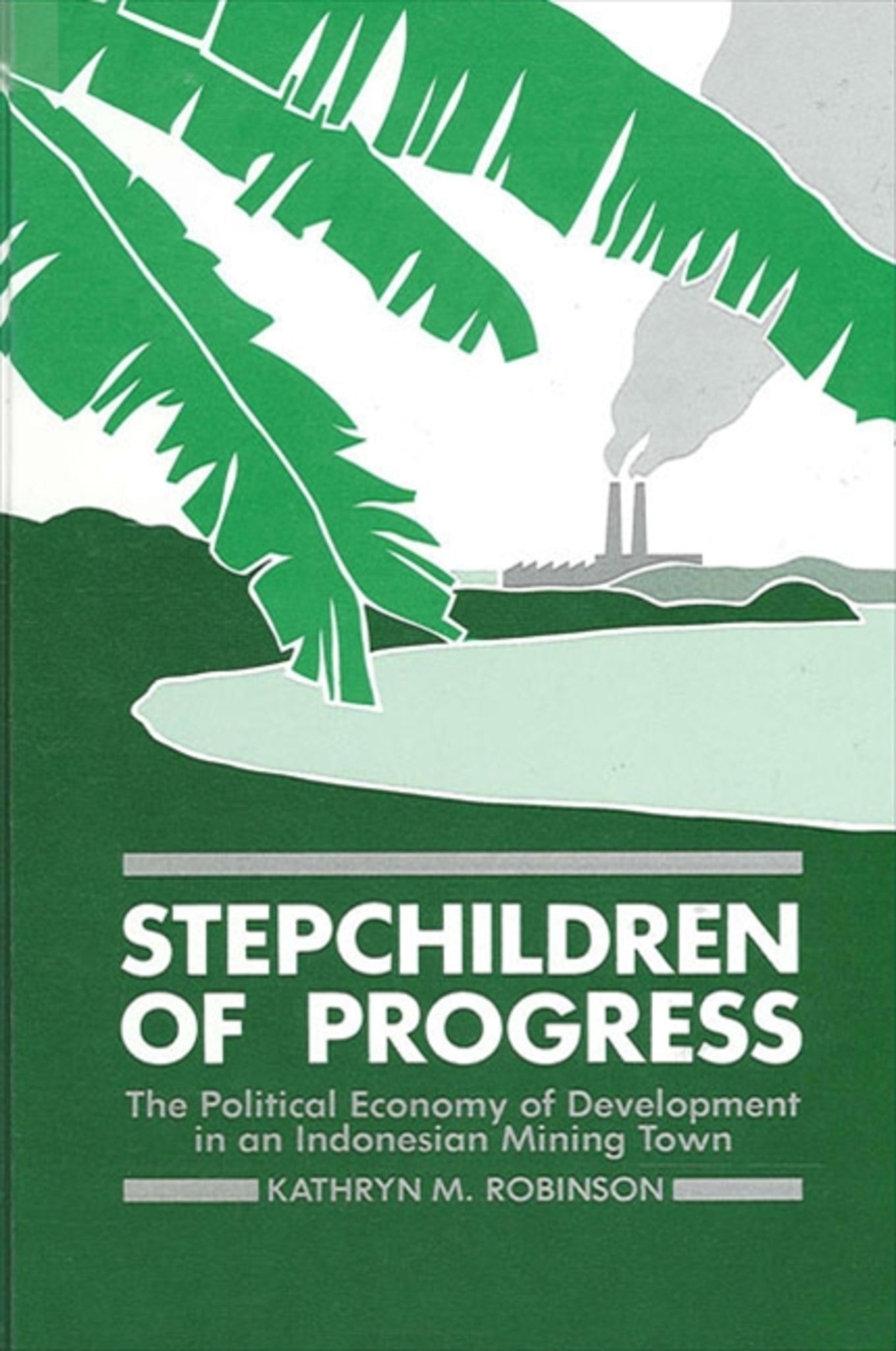We're sorry. An error has occurred
Please cancel or retry.
Stepchildren of Progress

Some error occured while loading the Quick View. Please close the Quick View and try reloading the page.
Couldn't load pickup availability
- Format:
-
30 August 1986

Dramatic changes caused by a foreign-owned nickel mining company in an Indonesian town provide the setting for this ethnographic study. Robinson notes the changes that took place in Soroako, a village in Sulawesi. The book outlines the effects of this new development, principally in regard to the 1,000 indigenous Soroakans whose former agricultural land is now the site for the mining town. It presents an analysis of developing capitalist relations in the mining town, investigating changes not only in the sphere of production manifested in daily life as new forms of work, but also in culture and ideology. The book also investigates related changes in other areas of social life, in particular that of women's roles, marriage and the family, and the importance of ideologies of race and ethnicity in regulating relations between different groups in the mining town. Furthermore, Robinson shows that new ideological forms have arisen in the context of the evolving class structure.


Contents Illustrations
Tables
Preface
Acknowledgments
1 Introduction
Studying Development Outline of the Study
2 The Mining Town
Inequality within the Company Labour Force Residential Stratification and the Segmentation of the Labour Force The Company Townsite Soroako Village Population of the Village Productive Activities in the Village Labour Market Segmentation and the Company Work Force Status—the Cultural Evaluation of Inequality Conclusion
3 The Village of Soroako: Its People and the Beginnings of Their Incorporation Into the Modern World
Introduction The Story of the Founding of the Village Supravillage Political Relations Sociocultural Identity Dutch Annexation of Central Sulawesi Changes in Governance in the Colonial Period Changes in Agriculture Islam Education Early Mining and Exploration The End of Colonial Rule Conclusion
4 Political Independence: The Village in the New State
Introduction The Darul Islam Rebellion The New Order Government's Foreign Investment Policy Foreign Investment in Mining Exploration in Soroako The Contract of Work Establishment of the Soroako Nickel Project Inco's Involvement in 'Development' The Company's Co-option of the Legitimating Ideology of the State
5 Land, Labour, and Social Relations in the Preproject Economy
Methodology The Organisation of Production Land: Swidden Cultivation Use of Tools in Swidden Cultivation Land: Paddy Fields Access to Other Factors of Production in Paddy Field Cultivation Control of Resources Relations of Production and the Division of Labour Division of Labour in Detail (in the Labour Process) Production Outside Agriculture Trade Trade and Social Inequality
6 Peasants, Proletarians, and Traders in the Peripheral Capitalist Economy
Changing Occupations Working for the Project Changes in the Organisation of Work Conflicting Views of the Organisation Stress—Adaption to a New Culture of Work Farming in Soroako Low Productivity in Agriculture Small Business Debtor-Creditor Relations The Economics of Survival Retrenchment Separation of Work and Home Consumerism Resistance to New Values Conclusion Postscript—the 1982 Industrial Action
7 Domination and Conflict : The Company, the Village, and the State
Conflicts over Land Land Alienation Redevelopment of the Village Disputes about Land Denial of Customary Land Rights Illegal Building Changing Values Concerning Land Ownership Conflicts with Local Government Conflicts of Authority Conflict with the Company Disputes about Water Conclusion
8 The Wedding of Hijra : Changing Social Relations
Wedding of Hijra Marriage in Soroako Changing Forms of Marriage Ideas of Romantic Love in Soroako Stability of Marriage Weddings and the Affirmation of Status Hijra's Wedding
9 Race Relations and Class Domination
Indonesian-Expatriate Relations in the Townsite Segregation Racial Conflict Servants Stealing Expatriates and the Village Indonesian Attitudes towards Expatriates Conclusion
10 Stepchildren of Progress: Ethnicity and Class Consciousness in the Mining Town
Divisions in the Mining Town Organisations in the Mining Town Relations between Soroakans and Village-Resident Immigrants Religious Differences Marriage Organisations within the Village Sources of Conflict between Immigrants and Soroakans The Soroakan Explanation Soroakan Identity False Consciousness or Class Consciousness Conclusion
11 Conclusion
Bibliography
Index



